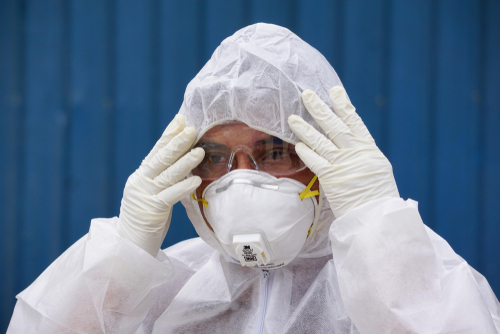
The full U.S. Senate on Thursday approved bipartisan legislation that would reauthorize the nation’s all-hazards preparedness and response law.
“I am pleased my Senate colleagues joined me in supporting this legislation that ensures America’s biodefenses are ready for the public health challenges of the 21st century,” said U.S. Sen. Richard Burr (R-NC), who sponsored the bill on May 8.
The Senate’s passage followed discharge of the Pandemic and All-Hazards Preparedness and Advancing (PAHPA) Innovation Act of 2019, S. 1379, by the U.S. Senate Health, Education, Labor, and Pensions (HELP) Committee, which had been considering it since Sens. Burr and Bob Casey (D-PA) introduced it last week.
The proposal is the companion bill to the same-named H.R. 269, introduced by U.S. Reps. Susan Brooks (R-IN) and Anna Eshoo (D-CA) on Jan. 8 and approved the same day by the U.S. House of Representatives.
Following Senate approval of the combined versions, the bill now heads back to the House to reconcile any differences before heading to the president’s desk for signature to make it law.
“When it comes to combating pandemics or biological attacks, being prepared is everything,” Sen. Burr said. “Today, our nation has an incredible response framework that brings the private and public sectors together to address a range of public health threats, both natural and man-made. As these threats grow increasingly complex, however, it is critical that our capability to respond keeps pace.”
Several other senators who are members on the HELP Committee on Thursday also applauded the Senate’s fast-track action on the bill.
“The number of public health emergencies in recent years – from outbreaks of Zika and Ebola virus and ongoing threats from multidrug-resistant pathogens, to natural disasters such as wildfires and flooding – reminds us on a nearly daily basis of the importance of a strong and well-coordinated public health system,” Sen. Casey said on May 16. “National leadership and funding that strengthens state and local response is essential to all our safety.”
U.S. Sen. Lamar Alexander (R-TN), another cosponsor of S. 1379, said the measure also would better protect Americans from emerging infectious diseases, including the measles or the flu.
“Helping our country stay prepared for a range of public health threats is a top priority,” he added.
Bill cosponsor U.S. Sen. Patty Murray (D-WA) pointed out that “robust public health preparedness and response programs” mean the difference between a threat and a disaster.
“The steps we take today will make all the difference in keeping our communities safe against the health threats of tomorrow from disease outbreaks to natural disasters, antimicrobial resistance, and more,” she said, commending the existing bipartisanship supporting “a strong reauthorization bill that gives these issues the attention they deserve.
The original 2006 PAHPA, which was reauthorized in 2013, established and maintained a framework to prepare for and respond to public health threats that may result in a public health emergency. Sen. Burr led this legislation with U.S. Sen. Edward Kennedy (D-MA).
The new measure would reauthorize PAHPA again and build on its existing policies and programs, among numerous provisions in the bill.
For instance, the legislation would clarify that the National Health Security Strategy should describe potential public health threats facing the United States and identify processes to prepare and respond to them, according to a summary provided by the lawmakers.
The bill also would require the Assistant Secretary for Preparedness and Response (ASPR) to develop guidelines within two years to inform regional systems of hospitals and health care facilities to treat patients affected by chemical, biological, radiological, or nuclear threats, including emerging infectious diseases, and to bolster medical surge capabilities and capacity, according to the summary.
Additionally, S. 1379 would authorize the ASPR, in consultation with the U.S. Secretary of Defense, to award grants to trauma centers that would enable military trauma teams to provide care at their centers, among other provisions.




